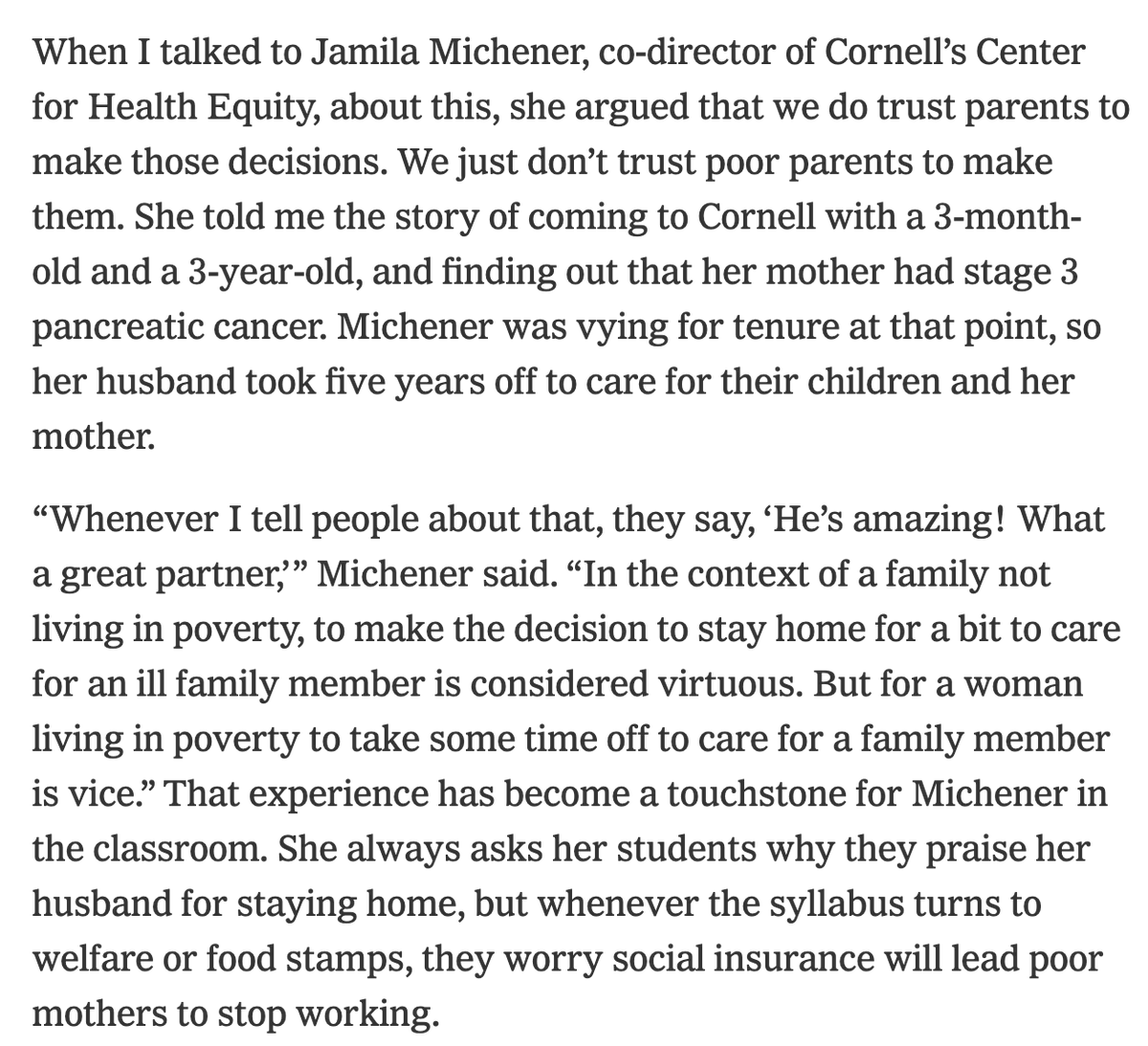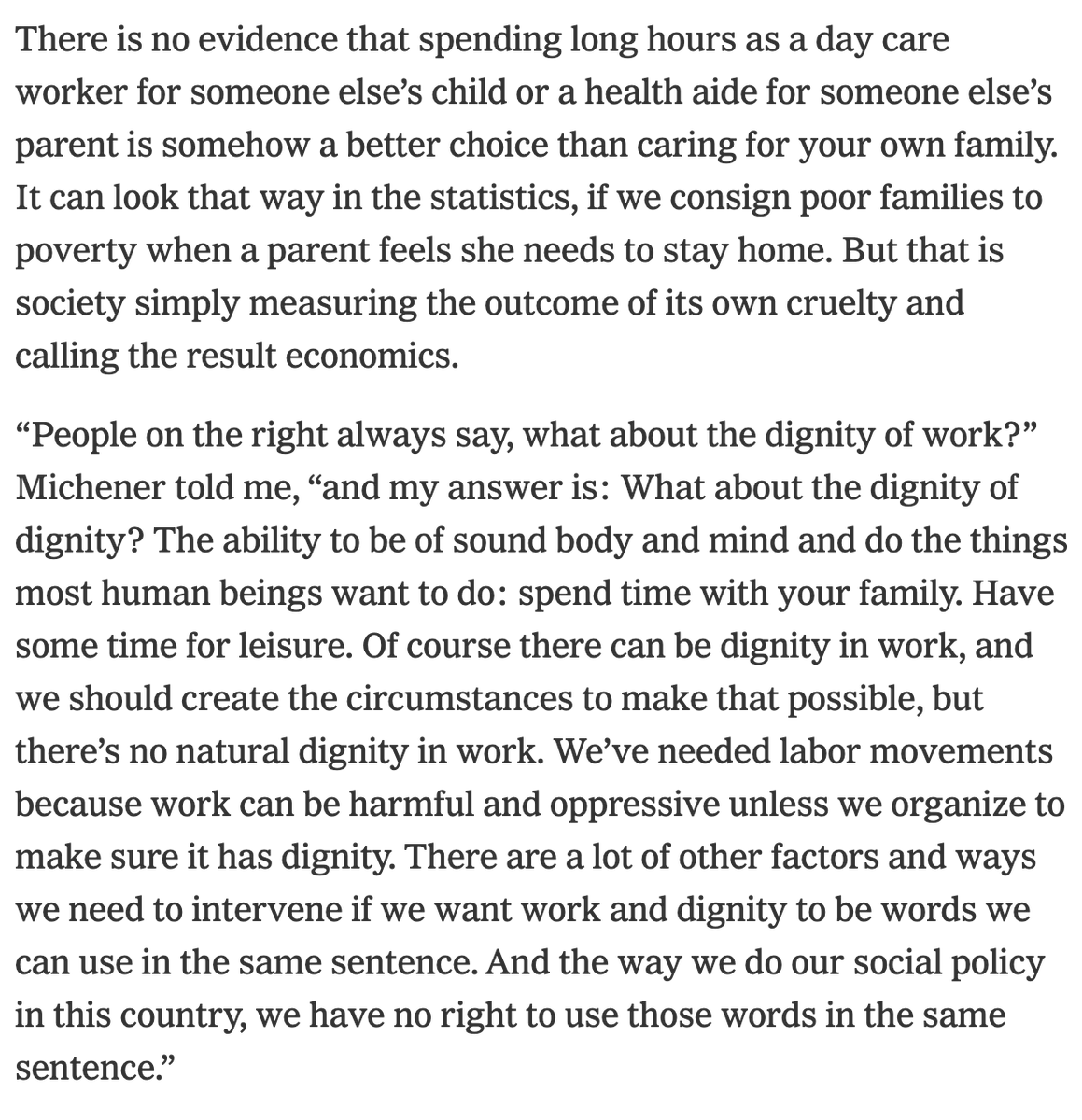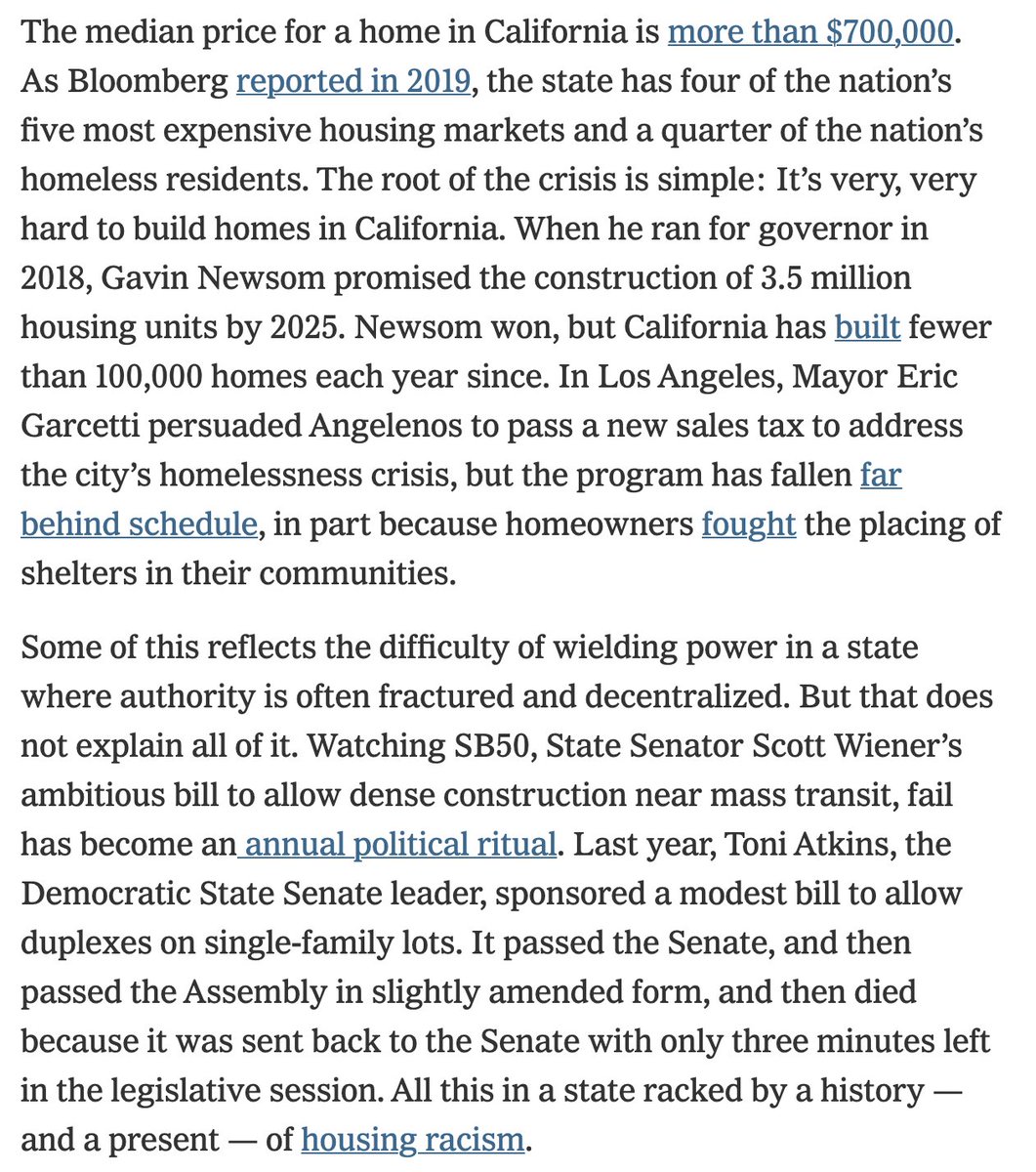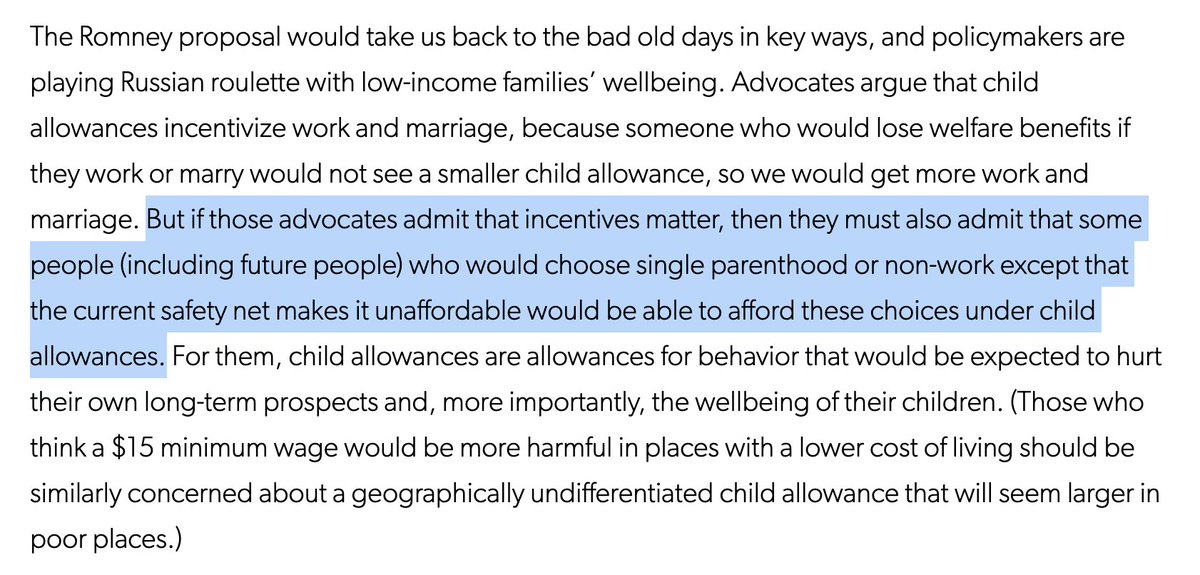
This is a piece I've been thinking about for a long time. One of the most dominant policy ideas in Washington is that policy should, always and everywhere, move parents into paid labor. But what if that's wrong? nytimes.com/2021/02/18/opi…
My reporting here convinced me that there's no large effect in either direction on labor force participation from child allowances. Canada has a bigger one than either Romney or Biden are considering, and more labor force participation among women.
But what if that wasn't true?
But what if that wasn't true?
Forcing parents into low-wage, often exploitative, jobs by threatening them and their children with poverty may be counted as a success by some policymakers, but it’s a sign of a society that doesn’t value the most essential forms of labor.
The problem is in the very language we use. If I left my job as a New York Times columnist to care for my 2-year-old son, I’d be described as leaving the labor force. But as much as I adore him, there is no doubt I’d be working harder. I wouldn't have stopped working!
I tried to render conservative objections here fairly. I appreciate that @swinshi talked with me, and I'm sorry I couldn't include everything he said. I'll say I believe I used his strongest arguments, not more speculative ones, in the piece.
https://twitter.com/swinshi/status/1362385654408245249
We did talk about "unintended consequences," but most of the consequences he considered unintended I considered intended. And some I just thought were too causally weak, like his argument that lowering child poverty this way might weaken social mobility.
Moreover, I believe the "unintended consequences" of forcing parents in these conditions to work are profound and devastating. When people make a decision to leave paid labor for a paltry social insurance check, there's often a damn good reason. It's not an easy decision.
In other contexts, and particularly other social strata, we understand and honor this. It's only with the poor that we don't. I love this point and story by @povertyscholar: 

There are lots of ways to make work more attractive to poor parents. The danger is when you use poverty as the lash. Then society is simply measuring the outcome of its own cruelty and calling the result economics.
Anyway — I hope you'll read the whole piece. The belief that paid labor is always a better choice for poor parents is a powerful one, and bipartisan. But it is built on so many toxic assumptions, not least that parenting isn't real work. nytimes.com/2021/02/18/opi…
• • •
Missing some Tweet in this thread? You can try to
force a refresh





